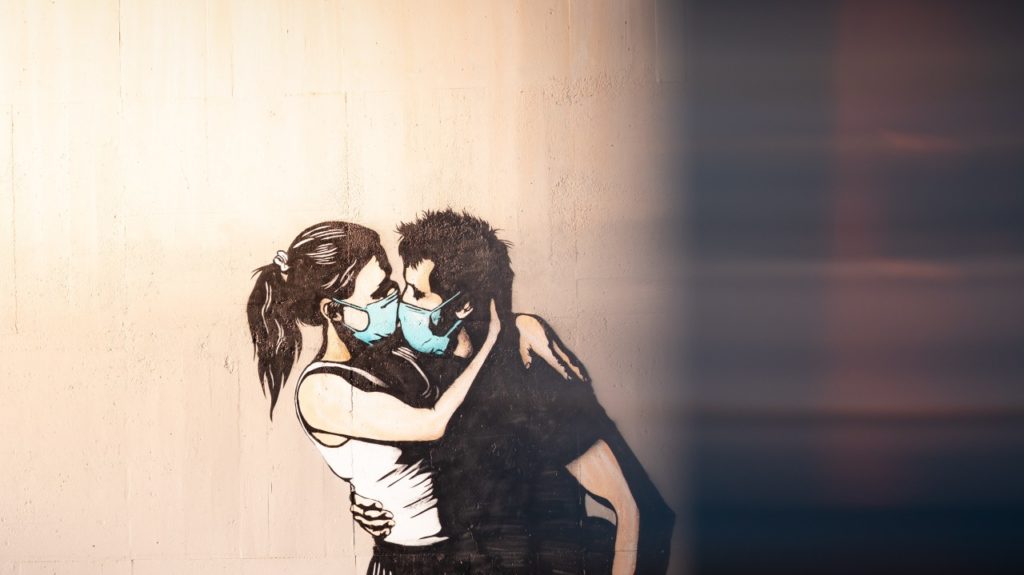Last year, the coronavirus pandemic changed the way we date. Debra Fileta discussed some of the challenges in “4 Tips for ‘Dating’ During COVID-19.” She writes:
Not only is it nearly impossible to meet other singles because of worldwide “shelter in place” orders, but when you do run into them at essential places like the grocery store, all you can see is a pair of eyes staring back at you thanks to the masks we’re all advised to wear. Talk about blind dating taken to a whole new level.
In addition to the virus creating some new dating obstacles, it also amplified a dating trend called “Apocalypsing.” (I have to be honest that researching this dating trend led me down a rabbit hole of millennial dating terms I had never heard of, such as “breadcrumbing,” “benching” and “exoskeletoned.” But I digress.)
According to the above article:
[A] dating site defined the “apocalypsing” phenomenon as “treating every relationship like it’s your last and getting super serious with someone you just started dating.”
If you attended a Christian college like I did, “getting super serious with someone you just started dating” may not sound too far from the norm. At my small Bible college, I encountered many students who were “apocalypsing” before it was cool. In fact, in discussing this trend with a friend, she commented, “I think every Christian girl does this, pandemic or not.”
That’s a fair point in this discussion. Christian dating culture does at times seem to breed “apocalyptic” intensity in relationships. That’s probably because those who are poised to get married and start families tend to approach romantic relationships with greater intentionality and fervor. And taking dating more seriously isn’t necessarily a bad thing.
What can be bad is letting hard circumstances drive us into unwise relationships. According to psychologist and marriage therapist Danielle Forshee, who is quoted in the article, the COVID-19 pandemic has created conditions that prompt people to rush relationships.
“Because of COVID, we’re in a scenario where we’re being told to not have human contact and physical touch, and that takes away our ability to have the emotional and physical connections that we as humans require. The more socially isolated we are, the more likely we are to get attached to somebody.”
And getting attached too early in the relationship carries risks, especially when you’re unable to observe the other person in normal circumstances. Like a long-distance relationship where communication takes place over the phone or through video chat, individuals may not have a clear picture of what the person is like in day-to-day life. Rushing things can cause you to miss red flags, have a lapse in judgment or even compromise your values. I like how Debra Fileta addresses this at the end of her article:
With a lack of face-to-face interactions, a lack of emotional boundaries can also begin sneaking into your conversations. But this is a crucial time to keep your boundaries intact because boundaries are what keep you healthy and your relationships strong.
Protect your heart emotionally by being cautious with your interactions with the opposite sex and making sure you’re not letting someone in too deep, too soon. Trust is something that must be built over time, and as easy as it might be to rush an interaction right now, it’s of utter importance that you take your time.
In light of all the uncertainties in the world around us, “apocalypsing” may seem like an attractive option. But as a new year starts, trust in the Lord and treat your relationships with care. Welcome the opinions and counsel of godly people. Commit to keeping your emotional and spiritual boundaries strong. Find healthy ways to connect with others, including potential dates. And remember: It’s probably best not to have the word “apocalypse” associated with your love life, anyway!
Copyright 2021 Suzanne Hadley Gosselin. All rights reserved.












